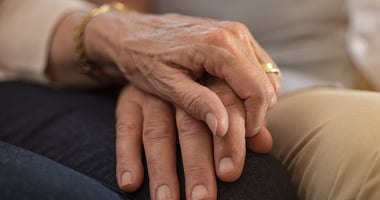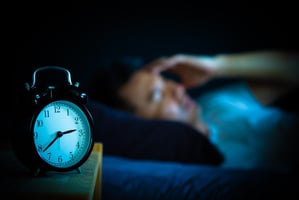General health professionals may be missing key opportunities to assess suicidal risk and prevent...
Sleep Disturbances Found to Predict Suicide Ideation in High-Risk Youth
 |
“Sleep disturbances stand apart from other risk factors because they are visible as a warning sign, yet non-stigmatizing and highly treatable … using brief, fast-acting interventions,” said lead author Rebecca Bernert, Ph.D., an assistant professor of psychiatry and behavioral sciences at Stanford University, in a press release. “That is why we believe they may represent an important treatment target in suicide prevention.”
Bernert and colleagues recruited 50 adults aged 18 to 23 who reported at least one past suicide attempt and/or recent suicide ideation from a university undergraduate research pool for the three-week study. At the start of the study, and 7 and 21 days later, participants answered questionnaires to measure the severity of their suicidal symptoms, insomnia, nightmares, depression, and alcohol use.
The researchers assessed participants’ sleep objectively for one week, during which participants wore watch-like devices containing an accelerometer to measure their wrist movements while asleep or trying to sleep. (The device had been validated as an accurate way to distinguish sleep-wake patterns and generate a variety of sleep metrics.)
Of the 50 participants included in the trial, 48 (96%) had at least one prior suicide attempt. Mean actigraphy values revealed objectively disturbed sleep parameters in these patients: 39 (78%) exhibited sleep patterns indicating clinically significant insomnia and 18 (36%) showed signs of nightmares.
The researchers found that that actigraphic and self-reported sleep disturbances (insomnia, nightmares, and sleep-onset variability) predicted acute suicidal ideation symptom changes at 7- and 21-day follow-ups, even when controlled for the severity of participants’ depression, substance use, and the severity of their suicidal symptoms at the start of the study. Falling asleep at very different times each night and waking at different times in the morning was especially predictive of an increase in suicidal symptoms at the 7- and 21-day marks. Participants with substantial variation in falling asleep times also reported more insomnia and nightmares, which independently predicted more suicidal behaviors, according to the study.
“To our knowledge, this is the first longitudinal report indicating that objectively and subjectively measured sleep disturbance confers risk for suicidal ideation independent of depression severity,” the study authors wrote. “Given the ease of sleep disturbance assessment and treatment, and its unique visibility as a warning sign, we propose poor sleep as a potential biomarker and therapeutic target for suicide prevention.”
For related information, see the Psychiatric News article “Sleep Experts Issue Recommendations for Children and Adolescent Sleep.”
(Image: iStock/diane39)





